


HENRY JAMES 1843 -
Acknowledgement
James: detail,
by the American portrait painter John Singer Sargent (1856-
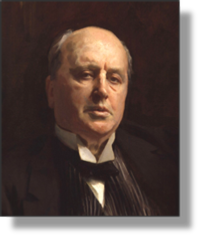 xxxxxHenry James, the American critic, novelist and short-
xxxxxHenry James, the American critic, novelist and short-
xxxxxJames was
born in New York City, son of a wealthy, somewhat eccentric
theologian. He spent his early years in Manhattan, taught
privately, but his family then went on the move, and he received
much of his education abroad, notably in London, Paris and Geneva.
By the age of 18 he had paid no less than six visits to Europe. He
was back in the States when the American Civil War broke out in
1861, but due to an injury to his back, he did not take part in
the conflict. Instead, he went with his family to New England, and
the following year attended Harvard Law School. There, however, he
spent much of his time reading literary works, mainly those of
Sainte-
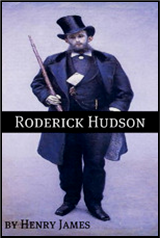
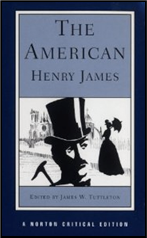 xxxxxIn fact, the young James had shown a wide interest in
classical literature and in writing from an early age, and was contributing reviews and
short pieces of prose to a number of periodicals from 1864
onwards. He produced his first novel Watch and
Ward in 1871, and his first volume of
short stories in 1875, together with a collection of travel essays
entitled Transatlantic Sketches. The
following year he published his first mature novel, Roderick
Hudson, centred around the tangled life of an American
sculptor living in Rome. In the meantime, however, he had made two
further visits to Europe, this time as an adult, and had decided
that it was there that he wished to work and live. He found the
cosmopolitan atmosphere more conducive to writing, and the cost of
living decidedly cheaper. He moved to Paris in 1875, and he was
soon at home among the capital’s literary circle, meeting, among
others, the Russian novelist
Ivan Turgenev and the French men of letters Gustave Flaubert,
Edmond de Goncourt, Alphonse Daudet, Guy de Maupassant and the
renowned Émile Zola. He made a living writing literary pieces and
a series of articles for the New York Tribune,
but he never felt fully accepted in Parisian society. Indeed, it
was during this time that he gleaned ideas for his novel The
American (published in 1877), the story of a wealthy but
somewhat gauche American who attempts to marry into a family of
French aristocrats and is skilfully rejected.
xxxxxIn fact, the young James had shown a wide interest in
classical literature and in writing from an early age, and was contributing reviews and
short pieces of prose to a number of periodicals from 1864
onwards. He produced his first novel Watch and
Ward in 1871, and his first volume of
short stories in 1875, together with a collection of travel essays
entitled Transatlantic Sketches. The
following year he published his first mature novel, Roderick
Hudson, centred around the tangled life of an American
sculptor living in Rome. In the meantime, however, he had made two
further visits to Europe, this time as an adult, and had decided
that it was there that he wished to work and live. He found the
cosmopolitan atmosphere more conducive to writing, and the cost of
living decidedly cheaper. He moved to Paris in 1875, and he was
soon at home among the capital’s literary circle, meeting, among
others, the Russian novelist
Ivan Turgenev and the French men of letters Gustave Flaubert,
Edmond de Goncourt, Alphonse Daudet, Guy de Maupassant and the
renowned Émile Zola. He made a living writing literary pieces and
a series of articles for the New York Tribune,
but he never felt fully accepted in Parisian society. Indeed, it
was during this time that he gleaned ideas for his novel The
American (published in 1877), the story of a wealthy but
somewhat gauche American who attempts to marry into a family of
French aristocrats and is skilfully rejected.
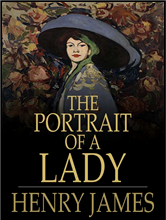 xxxxxIn 1876 James moved to London, “the great grey
Babylon”. There he mixed with the élite of society, got to know
the politician William Gladstone, and became acquainted with the
major literary figures of the day, including Alfred Tennyson,
Robert Browning, George Eliot, George Meredith, Robert Louis Stevenson and the
interior designer William Morris. A prominent figure of trans-
xxxxxIn 1876 James moved to London, “the great grey
Babylon”. There he mixed with the élite of society, got to know
the politician William Gladstone, and became acquainted with the
major literary figures of the day, including Alfred Tennyson,
Robert Browning, George Eliot, George Meredith, Robert Louis Stevenson and the
interior designer William Morris. A prominent figure of trans-
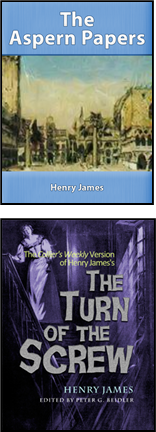
xxxxxOver the next
ten years there followed three novels and a number of popular
short stories. The novels, all socio-
xxxxxIn 1897 James
bought Lamb House in Rye, Sussex -
xxxxxMuch of
James’ early work and some of his later novels are centred around
the consequences arising from the disparity between American and
European culture in both manners and morals -
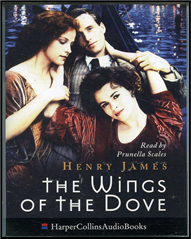 xxxxxIn dealing with the social and moral issues thrown up
by his close character studies, James wrote in a clear, realistic
style in his early works, but by the turn of the century -
xxxxxIn dealing with the social and moral issues thrown up
by his close character studies, James wrote in a clear, realistic
style in his early works, but by the turn of the century -
xxxxxThis said,
James was a key figure of literary realism in his early writing,
and, by his intricate study of character, he became a master of
the psychological novel, exerting a marked influence upon the
development of this genre. And he earned his place, too, as one of
literature’s most accomplished short-
xxxxxJames was a
prolific writer. In addition to twenty-
xxxxxIncidentally, the Polish-
xxxxx…… James’ attempts at writing for the stage ended in failure, but several of his works have since been successfully dramatized for stage and screen, including The Turn of the Screw and his novel Washington Square of 1881, a family drama set in a Manhattan neighbourhood.
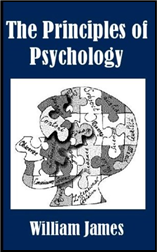 xxxxxJames never married, and whilst he had many friends
and acquaintances, he generally remained distant in his
relationships with both men and women. He grew up in the shadow of
his elder brother William James (1842-
xxxxxJames never married, and whilst he had many friends
and acquaintances, he generally remained distant in his
relationships with both men and women. He grew up in the shadow of
his elder brother William James (1842-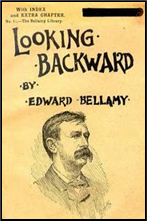 Roosevelt,
the American president from 1901 to 1909.
Roosevelt,
the American president from 1901 to 1909.
xxxxxAndxworthy of note at this time
is the American journalist and author Edward
Bellamy (1850-
Including:
William James

Vc-
xxxxxHenry James
was born in New York but, in his youth, spent a great deal of time
travelling in Europe. In 1875 he decided to move to Paris and earn
his living as a writer. He wrote for the New York Tribune and,
while in Paris, met, amongst others, the Russian novelist Ivan
Turgenev and the French writers Gustave Flaubert, Edmond de
Goncourt, Alphonse Daudet, Guy de Maupassant and Émile Zola. The
following year he settled in England, and it was here that he
spent much of his life. He mixed in high society and came to know
the major literary figures, including Alfred Tennyson, Robert
Browning, George Eliot, George Meredith, and Robert Louis
Stevenson. Known for his complex, psychological novels -


